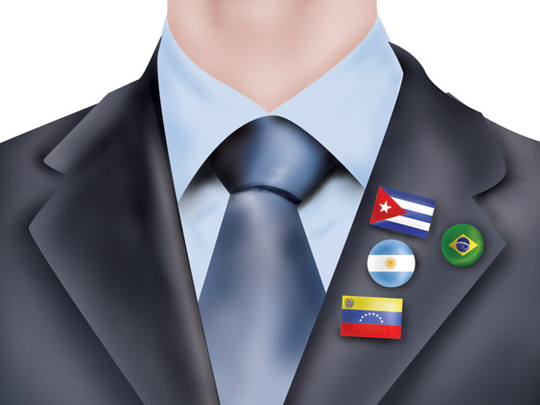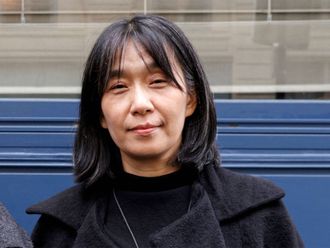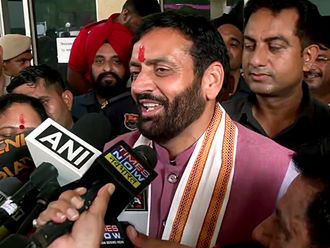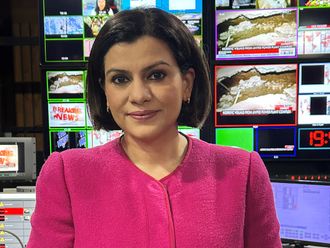
In April 1952, Syria's Ambassador to Buenos Aries, Zaki Al Jabi, marched into Casa Rosada to decorate the very charismatic and popular Argentine First Lady Eva Peron with the medal of honour of the Syrian Republic, for her "extraordinary merit" in promoting humanitarian affairs. Many in Syria questioned the wisdom of this action, claiming that Argentina was too removed from the complex affairs of the Middle East. President Adib Al Shishakli reportedly replied that while this might be the case then, Argentina would soon play a vital role in the region if not politically then economically. He said Syria should always be on the lookout for potential allies and partners.
His words have proved true today, 58-years later, as President Bashar Al Assad lands in Latin America for a state visit that will take him to Venezuela, Cuba, Brazil and Argentina.
Syrian-Latin American relations are not a new development. The late president Hafez Al Assad visited Cuba in 1979, where he met Fidel Castro, during the heyday of his power in Havana. Nine years ago, Castro himself landed in Damascus to meet with Bashar Al Assad, followed by Hugo Chavez, who twice visited Syria, most recently in September 2009, and Brazilian President Luiz Inácio Lula da Silva, who visited in December 2003. The most celebrated hero of Latin America, Che Guevara, had himself been to Syria in 1959, and praised its role as a champion of the Third World.
In the first phase of the current visit, Al Assad was warmly received by his Venezuelan counterpart Chavez, who promised to work with the Arab world to fight "America's imperialist and capitalist interests". Chavez, who is a thorn in the flesh of the US, presented Al Assad with a gold-plated replica of a sword that once belonged to Latin America's independence hero Simon Bolivar, who inspired the Bolivian Revolution. The two countries hope to boost bilateral trade and create a $100 million (Dh367.8 million) fund for development, and signed nine cooperation agreements, in addition to establishing a joint olive-oil refinery. Al Assad praised his host for speaking out for his country, adding, "President Chavez and I utterly agree on supporting resistance and the right to resist for all peoples whose rights are violated and lands occupied".
In Brazil, the Syrian delegation is expected to sign technology agreements in addition to boosting trade, given that Brazil already supplies sugar to Syria. In Argentina, the trade volume already stands at $158 million (Dh580 million) and the two countries are expected to sign agreements on tourism, culture, transportation and prevention of double taxation. Additionally, Argentine exports to Syria have increased by 75 per cent over the past two years. The Syrian community in Argentina, an estimated two million people (13 per cent of the residents of Buenos Aires), is fully backing the surge in bilateral relations.
Common ground
Politically, one common denominator among these Latin American countries is their support for Syria's right to regain the occupied Golan Heights. All of them, additionally, are vocal supporters of the Palestinians. Chavez severed his country's diplomatic relations with Israel during the Gaza war of 2008, while Cuba does not even recognise the state of Israel. These rising nations Brazil in particular have developed a newfound interest in the Middle East, and de Lula famously tried to broker a uranium exchange deal between Turkey and Iran last month, which was opposed by the US. The Obama administration is unimpressed with these Latin American countries showing an interest in the Middle East. In December, Hillary Clinton famously warned these countries not to "flirt with Iran". "They should take a look at what the consequences might well be for them. And we hope that they will think twice and we will support them if they do," she added.
In encouraging Latin American countries' desire to venture into the Middle East and building bridges with the immigrant community in Latin America, Syria is keeping all doors to Damascus wide open. In 2005-2009, it realised that the outside world does not end at the gates of London, Paris and Washington, DC. There is an entire universe out there, filled with heavyweight players willing to step into the oversized shoes of the western world. At one point, the policy was to head East; to build bridges with Malaysia, China, India, and Russia. These countries were willing — eager in fact — to engage with Damascus without political conditions. Now, although relations with the UK, US and France have improved, Syria does not want to put all its eggs in the same basket. It wants the international community to realise that it can have excellent relations with Iran, Saudi Arabia, the US and Cuba — all simultaneously. Being close to one country does not mean severing ties with another, just because that is the wish of the Obama administration.
Syria's relationship with Cuba may not please the US, but then Syria is not impressed that Avigodor Liebermann is welcome in Washington.
Sami Moubayed is editor-in-chief of Forward Magazine in Syria.











